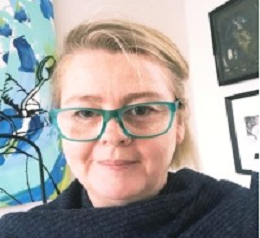INTERNATIONAL WOMEN'S FORUM
THEME: "Breaking Barriers, Shaping the Future of Women"
 17-18 Mar 2025
17-18 Mar 2025  Amsterdam, Netherlands
Amsterdam, Netherlands THEME: "Breaking Barriers, Shaping the Future of Women"
 17-18 Mar 2025
17-18 Mar 2025  Amsterdam, Netherlands
Amsterdam, Netherlands 
RMIT University, Australia
Title: If not me then who?: systems advocacy for unpaid carers through lived experience and collective voice
Caroline Lambert (she/her) is a proudly neurodivergent, carer perspective researcher and academic at RMIT University, Social Work and Human Services, School of Global, Urban and Social Studies. Her work is informed by the messiness and trauma of multigenerational care giving for family members who have felt and thought deeply throughout the decades, and who have frequently used drugs and alcohol to soften the edges of reality. Caroline is a co-convener of FaCRAN, the newly formed Family and Carer Research and Advocacy Network.
Informal care and support have been widely researched and debated in feminist settings. Amongst other things existing research has highlighted the gendered inequities of informal care, the impacts on health, relationships, the futures of people engaged in unpaid care, and the systemic underreach that creates and embeds a systemic reliance on them.1 Despite these knowns, in ‘Australia’ at least, there is still a widespread assumption that unpaid care will continue to underpin the care and prop up the support system2 and this, we would argue is a social justice, collective rights and a deeply feminist concern.
There are many reasons why people provide unpaid care but often, as we frequently hear, carers identify they had no choice in the matter, and few rights when they do provide care. As one family member articulated – if not me then who? These carers are predominantly women doing the heavy lifting of physical , economic and emotional labor. 3
As lived experience mental health family and carer researchers; we will unpack the real-world impacts of the positioning and identity of ‘the carer’, highlighting the consequences of high levels of responsibility on the everyday lives of women struggling to navigate complex and messy lives in the midst of intense family support roles.